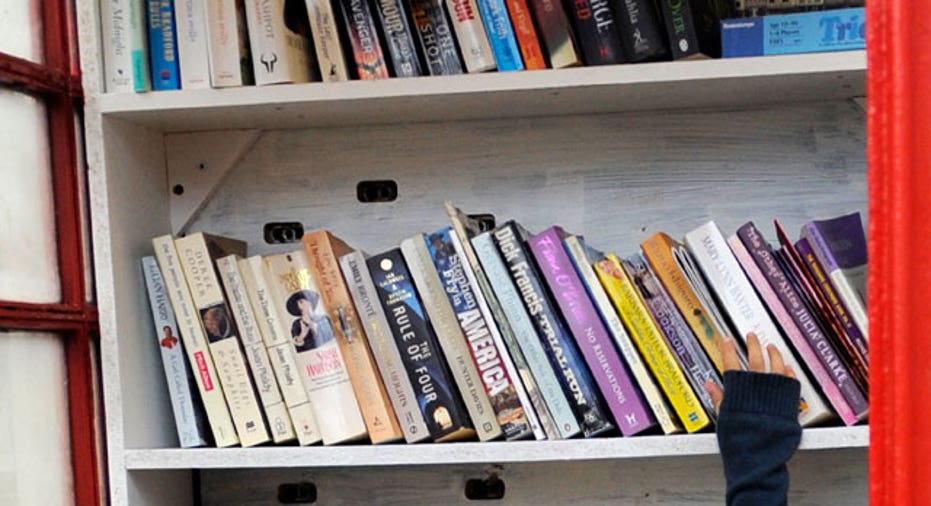Money-Saving Idea is One for the Books

I believe there's a fail safe way of identifying people who are better money managers than others.
The better money managers, generally speaking, are those who regularly patronize their towns' and cities' libraries.
You may be tempted to reject my theory out of hand, but just take a moment and hear me out.
Convincing me the above philosophy is correct are not just the obvious factors, such as library patrons saving money by not buying books. No, I believe it's broader than that.
I believe library lovers are probably also saving more money because they're into reading. And being fond of reading, they may have picked up the habit of perusing books, magazines, or newspapers devoted to wise personal financial approaches.
And even if they haven't developed an interest in reading the personal finance canon, the mere fact that they are readers may make them more inquisitive, and less likely to accept the pap that is spoon-fed them over big-screen TVs. They may, for instance, be inclined to seek out different ways to approach life than getting in a war with the neighbors over who can afford the nicer snowmobile.
Once they're hanging at their community libraries, these more curious-than-average folks may also begin looking into what else libraries can do. And if they're at a decent-sized library, they're likely to find the institution has more money-saving ideas and programs than they ever dreamed possible.
Case in point
To illustrate, let's quickly look at the library I patronize, a place called Eisenhower Library in Norridge, IL, a community perched on the northwest rim of Chicago. Though a Chicago resident myself, I'm able to hold a library card at Eisenhower Library, and use it almost as much as any Norridge native might.
Eisenhower, or Ike, as we regulars refer to it, is a pretty nice library. But it's no nicer than many others. I could take a 20-minute drive and visit public libraries in a variety of leafy suburbs, or even a couple larger branches of the Chicago Public Library, and find outposts as well or better equipped. Which is to simply say the programs I'm about to describe aren't unique.
Let's look at how my library saves me money:
Books.
No matter what book interests me, I'm likely to be able to read it for free by checking it out of my library. Ike has a excellent collection of books, but more important, like many libraries it is hooked up with a network of others, offering inter-library loans of books. While I also buy books frequently, I enjoy the opportunity to simply check one out when convenient.
DVDs, CDs, and other materials.
What I say about books above goes just as well for great movies and music on DVDs and CDs. Just do a little search at the computerized kiosks, and I'm likely to be able to find flicks or CDs that will keep me occupied for quite awhile. And I'm doing it with for free with a library card, not for money with credit cards.
Computers and Internet access.
Most people, including me, enjoy having home computers and Internet access. For many of us, both are necessities. But if you want to, you can avoid those hardware and software costs, not to mention the monthly cost of Internet service, by visiting your public library, and using the free computer stations there.
Classic movies.
In many towns, there's a theater than screens classic and art films as a change of pace from the usual commercial fare. That function in my neck of the woods is supplied by Eisenhower Library, which puts on a classic film every other Thursday.
You don't just watch the movie, you get a short education in the film, director and actors by a film scholar who presents the films. It's free, and there's also free popcorn, candy and coffee (donations encouraged), adding up to a very cost-effective way to indulge one's love of cinema.
Tech lessons.
You say you're thinking of taking some computer classes to get up to date on all the latest software and techniques? Before you spend money on such an effort, check out your local library. At Ike, there's a team of tech-savvy computer experts who can help you with virtually any task you might be undertaking. And if you want more formal instruction, regular computer classes are scheduled routinely in the lab. Expensive? Try about $10 a course, affordable by almost anyone's measure.
Guilt-free pleasures
These are just a start. Whether it's field trips for seniors, activities for young kids, reading programs for teens and adults, or seminars on anything from cooking to tax preparation, there are money-saving initiatives at most good libraries. And you don't have to feel guilt about availing yourself of them, for it's your tax dollars funding the institutions.
So if you have trouble saving money, check out your local library and see all the ways they can help you bank greenbacks.
It's just a great personal finance strategy, in my book.
The original article can be found at FiveCentNickel.com:Money-Saving Idea is One for the Books



















